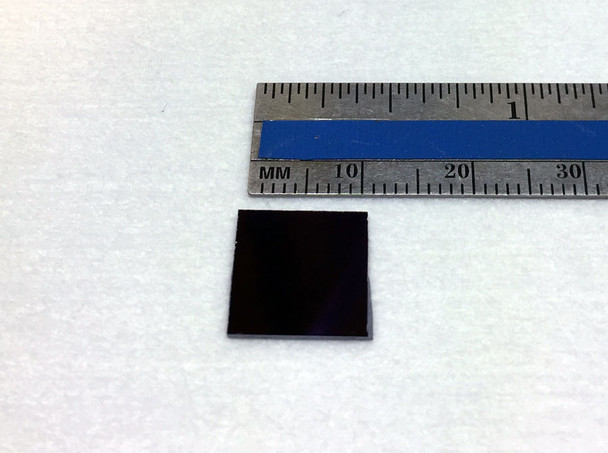Description
Isolated monolayer thickness MoS2 are grown onto SiO2/Si substrates. This particular product contains monolayer thickness MoS2 triangular flakes randomly distributed across SiO2/Si substrate. While some regions reach continuity with coalesced MoS2 triangles, this sample contains well-separated triangles for advanced spectroscopy, microscopy, and electronic measurements. The triangle sizes show sample to sample variation. Synthesized monolayer MoS2 triangles are highly luminescent and Raman spectroscopy studies also confirm the monolayer thickness. Overall, MoS2 monolayer thickness triangles are more luminescent compared to MoS2 triangles grown onto sapphire substrates.
Growth method: Our company synthesizes these monolayers using chemical vapor deposition (CVD) using highest purity (6N) gases and precursors in semiconductor grade facilities to produce crystalline and large domain size samples (1-50um). This is unlike commonly used MOCVD process wherein defects are very very large and domain sizes are small (10nm-500nm). Our samples are always highly luminescent and highly crystallized
Sample Properties
| Sample size | 1cm x 1cm square shaped |
| Substrate type | Thermal oxide (SiO2/Si) substrates |
| Coverage | Isolated and Partially Merged Monolayer Triangles |
| Electrical properties | 1.85 eV Direct Bandgap Semiconductor |
| Crystal structure | Hexagonal Phase |
| Unit cell parameters | a = b = 0.313 nm, c = 1.230 nm, α = β = 90°, γ = 120° |
| Production method | Atmospheric Pressure Chemical Vapor Deposition (APCVD) |
| Characterization methods | Raman, photoluminescence, TEM, EDS |
Specification.
- Identification. Well-separated MoS2 domains across SiO2/Si chip.
- Physical dimensions. one centimeter in size. Larger sizes up to 2-inch wafer-scale available upon requests.
- Smoothness. Atomically smooth surface with roughness < 0.1-0.2 nm.
- Uniformity. Highly uniform surface morphology. MoS2 triangles are scattered across sample
- Purity. 99.9995% purity as determined by nano-SIMS measurements
- Reliability. Repeatable Raman and photoluminescence response
- Crystallinity. High crystalline quality, Raman response, and photoluminescence emission comparable to single crystalline monolayer flakes.
- Substrate. SiO2/Si chips but our research and development team can transfer MoS2 triangles onto variety of substrates including PET and quartz without significant compromising of material quality.
- Support. 2Dsemiconductors USA is an American owned, regulated, and operated company. Our customers are well-protected by international as well as strict American customer laws and regulations. We give full technical support and guarantee your satisfaction with our well-established customer
- Defect profile. MoS2 monolayer triangles do not contain intentional dopants or defects. However, our technical staff can produce defected MoS2 using a-bombardment technique.
References
ACS Appl. Mater. Interfaces 2020, 12, 30, 34049–34057
Additional Information
Elements: |
Mo,S |
Element: |
Molybdenum |
Element: |
Sulfur |
Formula: |
MoS2 |
Material class: |
MX2 |
Material class: |
Dichalcogen |
Properties: |
Semiconductor |
Properties: |
Excitonic |
Band gap range: |
VIS |
Growth method: |
CVD |
Doping: |
Undoped |
Thin-film type: |
Triangles |
Substrate: |
SiO2/Si |

















